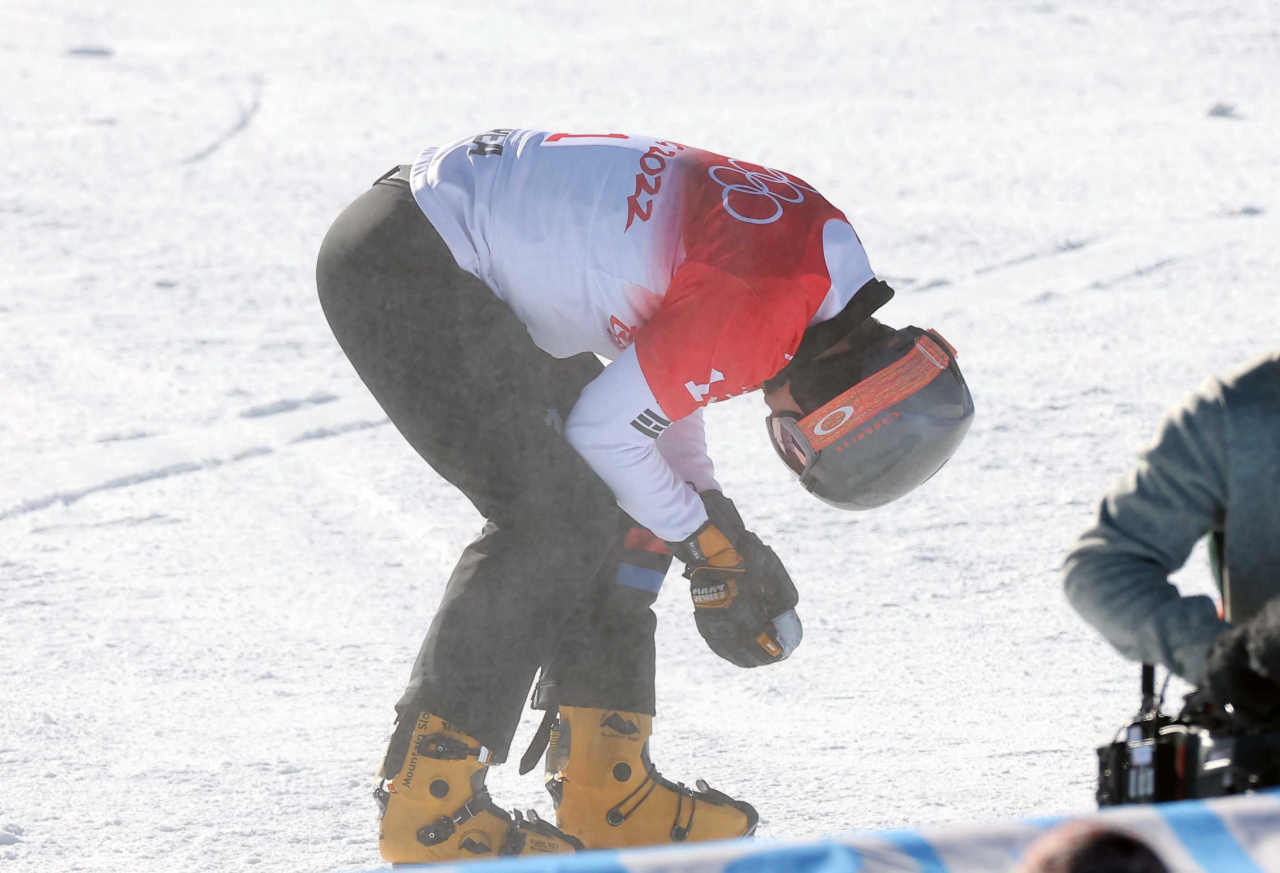[BEIJING OLYMPICS] With all medals coming from ice, S. Korea reverts to old ways
By YonhapPublished : Feb. 20, 2022 - 10:07

BEIJING -- South Korea's dominance in short track speed skating is hardly new. Despite some early hiccups in Beijing, South Korea still emerged as the leader in the short track medal count with two gold medals and three silver medals.
The country also added four medals in speed skating with two silver and two bronze from the oval.
But South Korea didn't get medals in sports other than the two skating events -- four years after expanding its Winter Olympic horizons four years go.
Winter sports fans in South Korea must have had flashbacks this month, as they saw medals from nothing but short track and long track speed skating.
South Korea grabbed its very first Winter Olympic medals at Albertville 1992. Over the next six competitions, South Korea continued to collect medals, all of them coming from short track speed skating, speed skating and figure skating.
As the host country of PyeongChang 2018, South Korea enjoyed long-awaited breakthroughs in snow and sliding events. Yun Sung-bin delivered a historic gold medal in the men's skeleton, becoming the first Asian champion of the event. The four-man bobsleigh team, led by pilot Won Yun-jong, grabbed silver medal. Alpine snowboarder Lee Sang-ho won silver in the men's parallel giant slalom. It was South Korea's first Olympic medal of any color on snow.
Then there was the women's curling team, which came out of nowhere to grab silver medal and became the darling of the Olympics during its inexorable march to the podium.
The number of medals won was certainly nice, and the country felt especially buoyed by the diversification of its Winter Olympic medal portfolio. South Korea was hopeful that unprecedented success in new sports would inspire a new generation of athletes to follow in the footsteps of medalists.
Building on that momentum in Beijing would have solidified the groundwork for growth, but PyeongChang medalists in those sports missed podiums altogether in China.
Struggles in sliding events had been predicted to a degree. Familiarity has often bred success for athletes from host countries in those races, where an intimate knowledge of the track can make a difference of a precious few seconds. It was no coincidence that China produced its first skeleton medalist here, with Yan Wengang grabbing the men's bronze.
Stripped of that home track advantage here, Yun struggled to 12th place while Won finished 19th in the two-man race.
At least expectations were relatively low for Yun and Won, who hadn't exactly set the sliding world on fire in international competitions leading up to Beijing 2022.
On the other hand, Lee Sang-ho had been considered a strong medal contender and his untimely exit from the quarterfinals in the parallel giant slalom was a major letdown. He arrived in China as the overall leader in the International Ski Federation (FIS) World Cup standings and he topped the qualifying round here, too.
But he was sent packing in the quarterfinals, where he lost to Victor Wild of the Russian Olympic Committee by 0.01 second.
The women's curling team, with skip Kim Eun-jung back leading the same four teammates, failed to recapture the magic from 2018.
Team Kim's tournament began with a 12-7 loss to Canada, and it started a string of up-and-down performances. In one game, Kim and her teammates would put on a shotmaking clinic. In the next, they would miss fairly simple shots and gift-wrap points to their opponent. South Korea defeated its rival Japan convincingly, 10-5, but it came after a demoralizing 6-5 loss to underdog China, a game that Kim would come to regret.
The 8-4 loss to Sweden in the final round-robin game, which knocked South Korea out of the tournament, was the perfect microcosm of such inconsistency. South Korea stole two points in the second end and looked to be in control for the first five ends. Sweden then seized control over the latter half and scored the game's final five points to complete the rally. (Yonhap)
Both the women's curling team and the four-man bobsleigh team won silver medals on the last day of PyeongChang 2018. There was no such last-day drama this time, with the athletes instead left to wonder what could have been.








![[KH Explains] How should Korea adjust its trade defenses against Chinese EVs?](http://res.heraldm.com/phpwas/restmb_idxmake.php?idx=644&simg=/content/image/2024/04/15/20240415050562_0.jpg&u=20240415144419)











![[Today’s K-pop] Stray Kids to return soon: report](http://res.heraldm.com/phpwas/restmb_idxmake.php?idx=642&simg=/content/image/2024/04/16/20240416050713_0.jpg&u=)